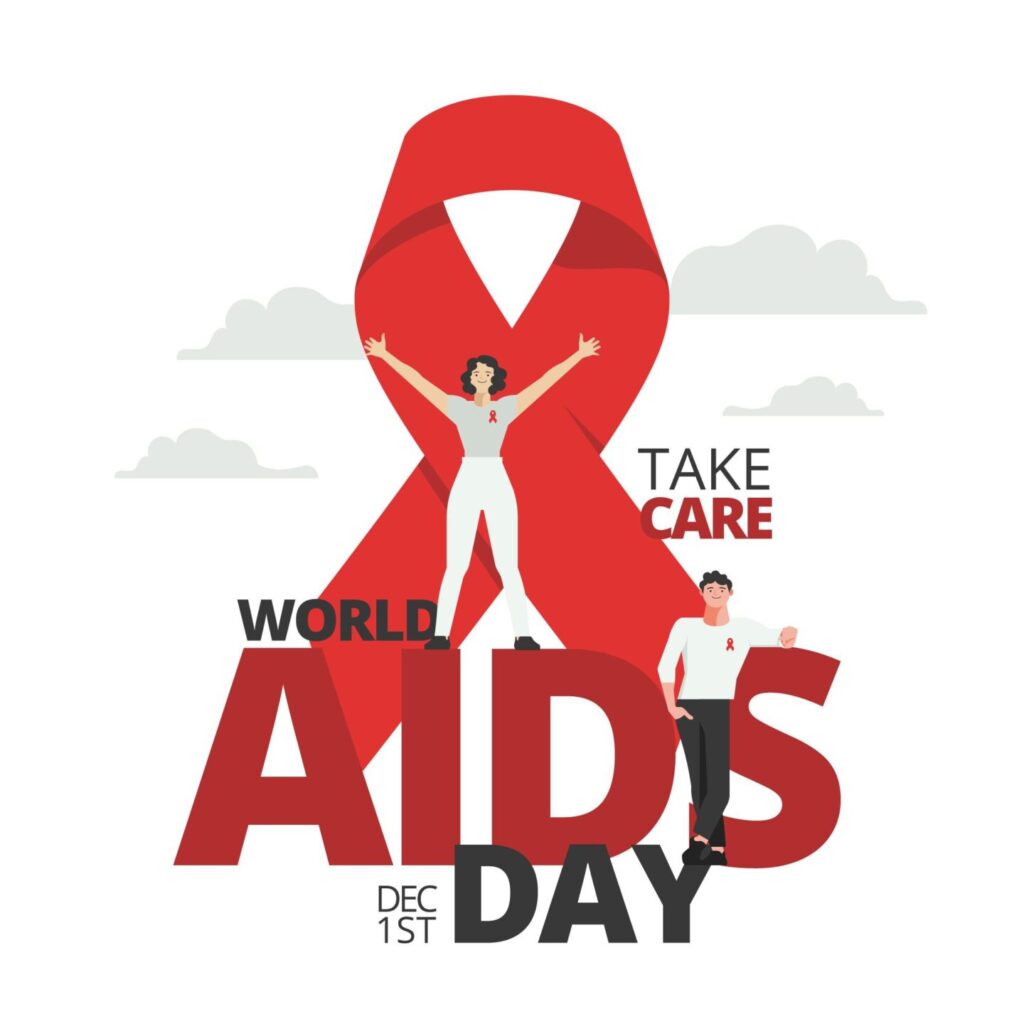Let’s take this World AIDS Day as a great opportunity to tackle your misconceptions about both HIV.
What is HIV?
HIV stands for Human Immunodeficiency Virus. It is a virus that damages the cells in your immune system and weakens your ability to fight everyday infections and disease.
AIDS (Acquired Immune Deficiency Syndrome) is the name used to describe a number of potentially life-threatening infections and illnesses that happen when your immune system has been severely damaged by the HIV virus.
While AIDS cannot be transmitted from 1 person to another, the HIV virus can. Despite there being no cure for HIV, but there are very effective drug treatments that allow people with the virus to live a long and healthy life and not develop AIDS.
Why are there still misconceptions about HIV?
At the onset of the HIV/AIDS epidemic, there was a lot of victim-blaming and fear mongering in society, particularly in the media. This video was released by the UK government to raise awareness of AIDS and it shows the tone that was given to the virus.
Even though we have come so far since then, there’s still very little education about HIV. Unfortunately, this means that there are still a lot of misconceptions about HIV and AIDS that are believed to be true, perpetuating the cycle of stigma that still exists today.
Top 6 common misconceptions about HIV
1. I can get HIV from the toilet
There’s a lot of misconceptions about how you can contract HIV, including thinking that you can get it from the toilet, kissing someone, or breathing the same air as someone who has HIV. You can only contract HIV from infected blood, semen, vaginal fluid, or breast milk.
2. Mosquitoes can spread HIV
As HIV can be spread through blood, it’s often thought that you can contract the virus though biting or bloodsucking insects like mosquitoes. However, this isn’t true! Firstly, HIV doesn’t last for very long inside these insets. Also, biting or bloodsucking insects don’t inject the blood of the person animal bitten before you.
3. HIV and AIDS only affect homosexual men
Many people believe that they don’t have to worry about HIV unless they are a sexually active gay man. This is because most men contract HIV through sexual contact with other men. However, you can get the virus from heterosexual contact with an infected person, too. Women who have sex with women have the lowest risk of transmission.

4. I’ll know if I have HIV because I’ll have symptoms
You can have HIV for many years without having symptoms. However, the longer you don’t get treatment after contracting the virus, the more likely it is to develop into AIDS. The only way for you or your partner to know if you’re positive is to get tested. That’s why routine testing is so important!
5. If I’m HIV positive, I’m going to die young
At the beginning of the HIV/Aids epidemic, the date rate for AIDS was extremely high. However, with so much advancement in knowledge and treatment, not many people contract AIDS. With early treatment of the HIV virus, you are likely to live a normal, long, healthy life.
6. I can’t spread the virus when taking HIV medication
HIV treatments can lower the amount of virus in your blood to a level that doesn’t show up in blood test (an undetectable viral load). You cannot transmit the virus if you have an undetectable viral load. However, if you skip medication or miss doses, you can pass on the virus. It’s always best to practice safe sex, like wearing condoms whether you have HIV or not.
Other misconceptions
BBC Sounds released a podcast with people living with HIV talking about misconceptions that they would like people to know. Here’s what they had to say:
If you’d like to listen to the whole episode, click here.
Related Information
If you’d like more info on sexual health, visit TheSprout’s sexual health info page.




